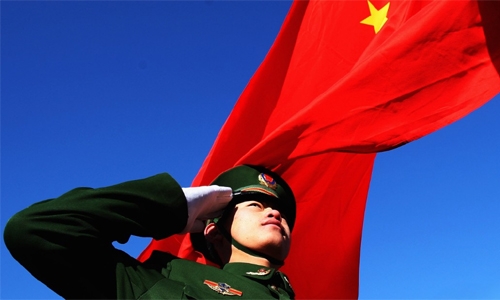Mind control in China has a very long history
China has built a vast network of training centers that teach law, Mandarin and vocational skills in the western region of Xinjiang. But the camps, especially their ambition to rewire people, reveal a familiar logic that has long defined the Chinese state’s relationship with its public: a paternalistic approach that pathologises deviant thought and behaviour, and then tries to forcefully transform them. The scale and pace of the government’s campaign in Xinjiang today may be extraordinary, but the practice and its methods are not.
As far back as the third century BC, the philosopher Xunzi argued that humanity was like “crooked timber” and that an individual’s character flaws needed to be scraped away or straightened out in the pursuit of social harmony. Mencius, a rival thinker, believed for his part in the innate goodness of human beings, but he too stressed the importance of self-improvement. In stark contrast to Western liberalism, Confucianism — and Chinese political culture more broadly — hinges not on individual rights, but on the acceptance of social hierarchy and the belief that humans are perfectible. But individuals are malleable, and if suzhi partly is innate, it is also the product of one’s physical environment and upbringing.
Just as the wrong environment can be corrupting, the right one can be transformative. Hence the importance of following the guidance of people deemed to possess higher “suzhi” — the people Confucius called “superior persons” and the Communists now call “leading cadres”. So even a lowly Uighur farmer can improve her suzhi — through education, training, physical fitness or, perhaps, migration. And it is the moral responsibility of an enlightened and benevolent government to actively help its subjects improve or, as the China scholar Delia Lin puts it, to reshape “originally defective persons into fully developed, competent and responsible citizens.”
During its seven decades in power, the Chinese Communist Party, or CCP, has repeatedly tried to remould recalcitrant students, political opponents, prostitutes and peasants alike. During the many centuries of imperial China, the family was the incubator of social order, with fathers guiding their sons and husbands guiding their wives according to a rigid set of rituals. If the family was in harmony, the entire community could be, too. On the other hand, any misdeeds could be punished with beatings, servitude, exile or death by strangulation, decapitation or slicing.
Today, the transformative logic of “ganhua” — the reformation of vile character traits through examples of moral superiority — underpins China’s education system, incarceration theory and even the work of the United Front, the CCP’s shadowy influence machine, whose agents try to court or co-opt nonparty members and Chinese living overseas. Many of the people the CCP has tried to reform were subjected to “administrative sanction” rather than criminal proceedings and placed in camps where they underwent “re-education through labor”. The “laojiao” system was formally abolished in 2013 after it was criticised for violating individual rights, yet re-education continues today — and not only in Xinjiang — under the guise of compulsory legal and moral training or tutelage.
Both the ordinary and the famous can be subjected to it, often against their will and without legal recourse. In 2014, the actor Huang Haibo underwent six months of “custody and education” after he solicited a prostitute. The star actress Fan Bingbing disappeared for several months this year — then publicly confessed that she had committed tax fraud and praised the CCP. It’s a grassroots effort, too. In the name of “rural revitalisation,” CCP officials in the northeastern province of Heilongjiang are calling for “the standardisation of peasant thought and behaviour.” The program is just one part of a national, threeyear action plan by the party’s Central Committee “to raise the ideological and moral ‘suzhi’ of Chinese peasants in order to refresh and revise their simple and honest character.”
When applied in Xinjiang, Tibet or other borderlands, ganhua seems to amount to a “civilising project,” as the anthropologist Stevan Harrell has said, which aims to create a uniform populace under the banner of a single “Chinese nation”. But it is more than that. In the 1960s, the psychiatrist Robert Jay Lifton called Chinese-style thought control — with its dogmatic belief in absolute truth and compulsion to mend the incorrigible — “ideological totalism.” As Lifton noted, ideological totalism in China is not a continuous process, but a cyclical phenomenon. It elicits a mix of emotions. Some subjects comply, others withdraw; a few may even be enthusiastic at first.
But over time the suffocating nature of repression also tends to breed resentment and resistance, and those in turn can bring about even more repressive methods of control. During the Maoist era, various reformation campaigns petered out as both detainees and their overseers suffered from hunger and exhaustion. One wave of repression would abate but then another would appear, with a different target: The so-called rightists who were released in 1959 on Mao’s orders were labeled counter-revolutionaries and hounded just a few years later, during the Cultural Revolution.
Starting in the 1980s, Deng Xiaoping’s agenda of economic reform helped return Chinese society to a more even and pragmatic keel. Yet ideological totalism seems to contain the seeds of its own destruction. It is costly. It encourages abuses of power by local party officials, who reap rewards for maintaining stability. Those abuses undermine both the rule of law and social trust. Over time, ideological totalism risks corroding the state’s legitimacy. And “once the public begins to lose trust in the government and ceases to identify with it,” the Chinese scholar Yu Jianrong has written, “panic sets in and complete social chaos is unleashed.”
Related Posts

